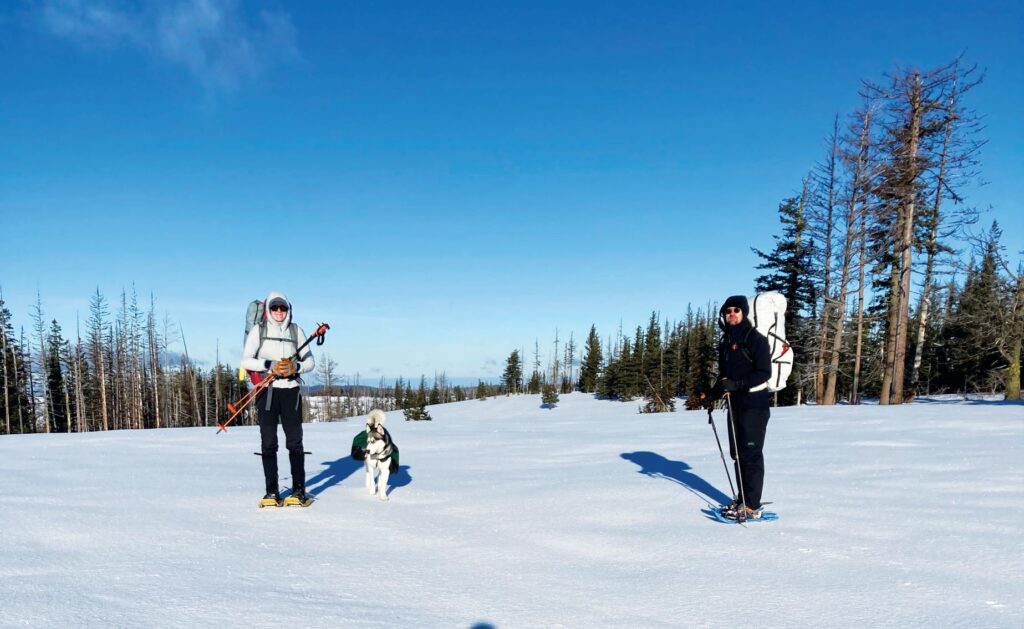The gear you need for snowshoeing will depend on where you’re going and how long you plan to be out. Here are four components for a safe, comfortable experience.
- Snowshoes vary widely in traction level, flotation, and price point. MSR mountaineering snowshoes are recommended for strenuous snowshoe trips in difficult terrain as is found at Oregon Butte. Lightweight introductory snowshoes like those sold at Costco can be fine for mellow terrain.
- Bring the “10 essentials” on every hike, especially during the winter months when the sun goes down early and temperatures can be frigid. Add the following items to a daypack for every adventure: navigation equipment (including paper maps), headlamp, sun protection (sun reflection on snow can lead to serious sunburns and eye injury), first aid kit, knife and an emergency gear repair kit, emergency fire starter, emergency shelter, extra food, extra water, and extra clothing layers.
- Footwear should be waterproof and breathable and insulated for winter trips. Clothing should be layered to allow for easy adjustments. Avoid cotton, as it holds moisture.
- It is very helpful to use both gaiters (to keep snow out of one’s boots) and trekking poles while snowshoeing.

[Feature photo courtesy Fernie Alpine Resort.]
Find more articles about snowshoeing in the OTO archives.













